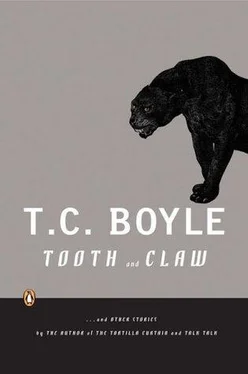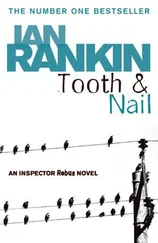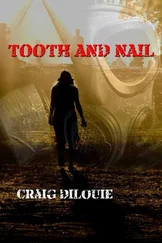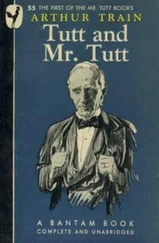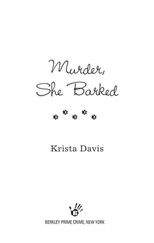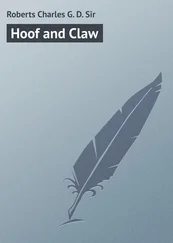CYNOMORPH
WHATEVER IT WAS they’d heard, it wasn’t available to her, though she’d been trying to train her hearing away from the ceaseless clatter of the mechanical and tune it to the finer things, the wind stirring in the grass, the alarm call of a fallen nestling, the faintest sliver of a whimper from the dog three houses over, begging to be let out. And her nose. She’d made a point of sticking it in anything the dogs did, breathing deep of it, rebooting the olfactory receptors of a brain that had been deadened by perfume and underarm deodorant and all the other stifling odors of civilization. Every smell was a discovery, and every dog discovered more of the world in ten minutes running loose than a human being would discover in ten years of sitting behind the wheel of a car or standing at the lunch counter in a deli or even hiking the Alps. What she was doing, or attempting to do, was nothing short of reordering her senses so that she could think like a dog and interpret the whole world — not just the human world — as dogs did.
Why? Because no one had ever done it before. Whole hordes wanted to be primatologists or climb into speedboats and study whales and dolphins or cruise the veldt in a Land Rover to watch the lions suckle their young beneath the baobabs, but none of them gave a second thought to dogs. Dogs were beneath them. Dogs were common, pedestrian, no more exotic than the housefly or the Norway rat. Well, she was going to change all that. Or at least that was what she’d told herself after the graduate committee rejected her thesis, but that was a long time ago now — two years and more — and the door was rapidly closing on it.
But here she was moving again, and movement was good, it was her essence: up over the fence and into the next yard, dodging a clothesline, a cooking grill, a plastic trike, a sandbox, reminding herself always to keep her head down and go quadrupedal whenever possible, because how else was she going to hear, smell and see as the dogs did? Another fence, and there, at the far end of the yard, a shed, and the dense rust-colored tails of the chows wagging. The rain spat in her face, relentless. It had been coming down steadily most of the night, and now it seemed even heavier, as if it meant to drive her back indoors where she belonged. Lightning forked overhead. There was a rumble of thunder. She was shivering — had been shivering for the past hour, shivering so hard she thought her teeth were coming loose — and as she ran, doubled over in a crouch, she pumped her knees and flapped her arms in an attempt to generate some heat.
And what were the dogs onto now? She saw the one she called Barely disappear behind the shed and snake back out again, her tail rigid, sniffing now, barking, and suddenly they were all barking — the two chows and the semi-shepherd she’d named Factitious because he was such a sham, pretending he was a rover when he never strayed more than five blocks from his house on E Street. There was a smell of freshly turned earth, of compost and wood ash, of the half-drowned worms Snout the Afghan loved to gobble up off the pavement. She glanced toward the locked gray vault of the house, concerned that the noise would alert whoever lived here, but it was early yet, no lights on, no sign of activity. The dogs’ bodies moiled. The barking went up a notch. She ran, hunched at the waist, hurrying.
And then, out of the corner of her eye, she caught a glimpse of A.1., the big-shouldered husky who’d earned his name by consuming half a bottle of steak sauce beside an overturned trash can one bright January morning. He was running — but where had he come from? She hadn’t seen him all night and assumed he’d been wandering out at the limits of his range, over in Bethel or Georgetown. She watched him streak across the yard, ears pinned back, head low, her path converging on his until he disappeared behind the shed. Angling round the back of the thing — it was aluminum, one of those prefab articles they sell in the big warehouse stores — she found the compost pile her nose had alerted her to (good, good: she was improving) and a tower of old wicker chairs stacked up six feet high. A.1. never hesitated. He surged in at the base of the tower, his jaws snapping, and the second chow, the one she called Decidedly, was right behind him — and then she saw: there was something under there, a face with incendiary eyes, and it was growling for its life in a thin continuous whine that might have been the drone of a model airplane buzzing overhead.
What was it? She crouched low, came in close. A straggler appeared suddenly, a fluid sifting from the blind side of the back fence to the yard — it was Snout, gangly, goofy, the fastest dog in the neighborhood and the widest ranger, A.1.’s wife and the mother of his dispersed pups. And then all five of the dogs went in for the kill.
The thunder rolled again, concentrating the moment, and she got her first clear look: cream-colored fur, naked pink toes, a flash of teeth and burdened gums. It was a opossum, unlucky, doomed, caught out while creeping back to its nest on soft marsupial feet after a night of foraging among the trash cans. There was a roil of dogs, no barking now, just the persistent unraveling growls that were like curses, and the first splintering crunch of bone. The tower of wicker came down with a clatter, chairs upended and scattered, and the dogs hardly noticed. She glanced around her in alarm, but there was nobody to be seen, nothing moving but the million silver drill bits of the rain boring into the ground. Just as the next flash of lightning lit the sky, A.1. backed out from under the tumble of chairs with the carcass clenched in his jaws, furiously shaking it to snap a neck that was already two or three times broken, and she was startled to see how big the thing was — twenty pounds of meat, gristle, bone and hair, twenty pounds at least. He shook it again, then dropped it at his wife’s feet as an offering. It lay still, the other dogs extending their snouts to sniff at it dispassionately, and they were scientists themselves, studying and measuring, remembering. And when the hairless pink young emerged from the pouch, she tried not to feel anything as the dogs snapped them up one by one.
CARA
“YOU MEAN you didn’t confront her?”
Cara was in her royal purple robe — her “wrapper,” as she insisted on calling it, as if they were at a country manor in the Cotswolds entertaining Lord and Lady Muckbright instead of in a tract house in suburban Connecticut — and she’d paused with a forkful of mushroom omelet halfway to her mouth. She was on her third cup of coffee and wearing her combative look.
“Confront her? I barely had time to recognize she was human.” He was at the sink, scrubbing the omelet pan, and he paused to look bitterly out into the gray vacancy of the yard. “What did you expect me to do, chase her down? Make a citizen’s arrest? What?”
The sound of Cara buttering her toast — she might have been flaying the flesh from a bone — set his teeth on edge. “I don’t know,” she said, “but we can’t just have strangers lurking around any time they feel like it, can we? I mean, there are laws —”
“The way you talk you’d think I invited her. You think I like mental cases peeping in the window so I can’t even have a moment’s peace in my own house? On a Saturday morning, no less?”
“So do something.”
“What? You tell me.”
“Call the police, why don’t you? That should be obvious, shouldn’t it? And that’s another thing—”
“I thought she was a bear.”
“A bear? What, are you out of your mind? Are you drunk or something? A bear? I’ve never heard anything so asinine.”
That was when the telephone rang. It was Ben Ober, his voice scraping through the wires like a set of hard chitinous claws scrabbling against the side of the house. “Julian?” he shouted. “Julian?”
Читать дальше
